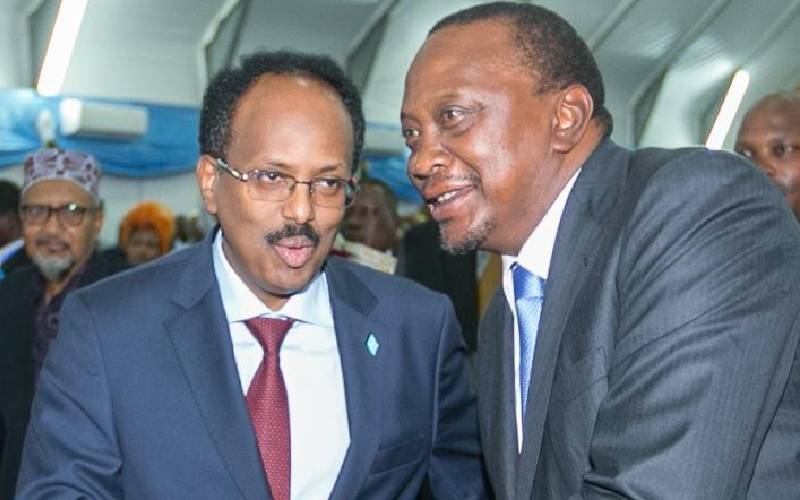×
The Standard e-Paper
Stay Informed, Even Offline

President Uhuru Kenyatta with Somali President Mohamed Abdullahi Farmaajo in Mogadishu, Somalia. Febraury 2017. [PSCU]
Tuesday’s ruling of the maritime border dispute between Kenya and Somalia could not have come at a more apt time for citizens of the Horn of African nation.